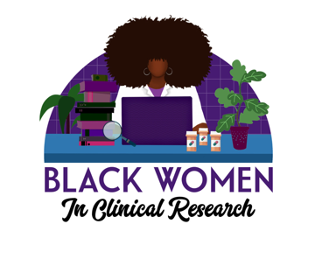4 key factors to improve patient safety
Access to healthcare is vital for people all around the world, but it is equally important that this healthcare is of high quality. With the increasing complexity of modern-day healthcare settings, it is an unfortunate truth that — in addition to the fact that the quality of care varies significantly across different settings and geographies — human and systemic error can negatively impact patients on many levels. Estimates show that in high-income countries, up to 1 in 10 patients is harmed while receiving hospital care, and nearly 50% of such cases are thought to be preventable. Examples of patient safety complications include improper medication dosing, care-associated infections, and diagnostic errors.

In response to this grave reality, we’ve seen the introduction and evolution of the field of patient safety, aiming to reduce preventable harm and thereby improve healthcare outcomes for patients. In the past two decades, there have been great strides in patient safety across all fields as measured in various ways, such as by the reduction of healthcare-associated infections and other complications of care.
Unfortunately, since the start of the COVID-19 pandemic, these same indicators have begun to show that patient safety is on the decline. With the pressure placed on the healthcare system in this public health crisis, overworked healthcare professionals, and staffing shortages, routine safety practices have been sometimes forced to the wayside. So what can be done to support patient safety — especially in times of uncertainty — and maintain a commitment to quality care?
In honor of National Patient Safety Awareness Week, some of our experts weighed in on improving patient safety through technology, teamwork, communication, and culture.
Jenny P. Chen, MD, on technology and culture
“Patient safety improves when there is time and clarity to care for the patient, when we can make technology work for us to remove the noise and prioritize what’s important to review. Technology gives us limitless ability to add data and safety protocols; however, without vision or constraint, technology can work against us and cause unnecessary inefficiencies, alarm fatigue, and distractions.
“Sustained, robust patient safety programs require a buy-in and non-punitive culture of safety from the top down, where mistakes and human factors are acknowledged and openly shared, and where staff feel supported to share lessons learned. One cannot expect true patient safety if healthcare workers do not feel safe reporting medical concerns.”
 Jenny P. Chen, MD, is a board-certified emergency medicine physician at Winchester Hospital and Holy Family Hospitals. Dr. Chen previously served as a Team Strategies and Tools to Enhance Performance and Patient Safety (TeamSTEPPS) Instructor, Medical Simulation, and Internship Program Director at the U.S. Naval Hospital Okinawa (USNHO) in Japan. She is most passionate about optimizing patient safety and dedicated to changing the culture of medicine through teamwork, communication, provider resilience, and addressing inequities and social determinants of health. She has been on the frontline of the COVID-19 epidemic, caring for patients in the emergency room.
Jenny P. Chen, MD, is a board-certified emergency medicine physician at Winchester Hospital and Holy Family Hospitals. Dr. Chen previously served as a Team Strategies and Tools to Enhance Performance and Patient Safety (TeamSTEPPS) Instructor, Medical Simulation, and Internship Program Director at the U.S. Naval Hospital Okinawa (USNHO) in Japan. She is most passionate about optimizing patient safety and dedicated to changing the culture of medicine through teamwork, communication, provider resilience, and addressing inequities and social determinants of health. She has been on the frontline of the COVID-19 epidemic, caring for patients in the emergency room.
Meena P. LaRonde, MSN, RN, CCRN, on teamwork and communication
“It is trusting that the members of your team have your back and will go above and beyond to provide a safe environment and safe care. A team allows you to reflect on your clinical decisions and professional development by providing feedback and insight. A team develops and grows strong clinicians and promotes patient safety.”
 Meena P. LaRonde, MSN, RN, CCRN, is an experienced senior nursing leader and charge nurse in the cardiac intensive care unit (CICU) at Boston Children’s Hospital. In addition to caring for critically ill neonates, infants, children, adolescents and adults with acquired and congenital heart disease, Meena has experience providing outpatient cardiovascular care, and hands-on and didactic education to nursing students. Meena completed the Boston Children’s Hospital nursing science fellowship. Meena recently published her research, “Individualized Family-Centered Developmental Care for Infants With Congenital Heart Disease in the Intensive Care Unit”, in the American Journal of Critical Care. This work was also presented at local and national nursing and medical conferences. Meena’s expansive knowledge base and research — focused on patient safety, neurodevelopment, and care practice guidelines — has contributed to several successful quality and process improvement initiatives over the course of her career.
Meena P. LaRonde, MSN, RN, CCRN, is an experienced senior nursing leader and charge nurse in the cardiac intensive care unit (CICU) at Boston Children’s Hospital. In addition to caring for critically ill neonates, infants, children, adolescents and adults with acquired and congenital heart disease, Meena has experience providing outpatient cardiovascular care, and hands-on and didactic education to nursing students. Meena completed the Boston Children’s Hospital nursing science fellowship. Meena recently published her research, “Individualized Family-Centered Developmental Care for Infants With Congenital Heart Disease in the Intensive Care Unit”, in the American Journal of Critical Care. This work was also presented at local and national nursing and medical conferences. Meena’s expansive knowledge base and research — focused on patient safety, neurodevelopment, and care practice guidelines — has contributed to several successful quality and process improvement initiatives over the course of her career.






